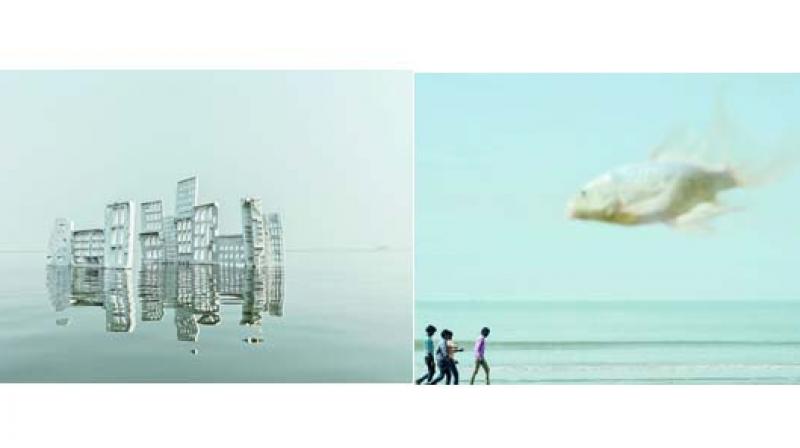A marvelling tale of two worlds
As part of the ongoing Krishnakriti festival, the Marvels of humans show at Goethe Zentrum, reflects a fresh perspective.;

Sameer Tawde is in the city to showcase his works in the 16th edition of the festival that has the theme ‘Heritage and urban cultures’. Sameer’s works have been included in the event for their contemporary, modern and personally accentuated views on the urban milieu.
The Mumbai-based artist and photographer started his creative journey with a graduate degree in architecture and a post graduation from NID, Ahmedabad. The prolific visual artist has exhibited his works at prestigious museums, art biennial and film festivals both in India and abroad, both in solo and group shows.
“By the fourth year of graduation I was sure I wanted to study communication design. Later while studying in NID I got inspired to pursue photography. My very first project as a photographer was on the life of my mother, then my neighbourhood and finally my city,” he shares.
Grounded and rooted as his involvement with photography was the evolvement of his work was equally organic. Sameer works with miniature models, sculptures and customised life-sized structures. In a day when photographers use filters and digital mix techniques liberally, Sameer prefers to work with traditional methods. “I believe in following age-old processes in my work. I juxtapose real objects, props and other elements and finally click the picture, so there are no digital enhancements or changes involved,” he explains.
Given this, it is interesting to imagine how the image of a huge fish in the centre, the seascape in the background and a group of puny men entering the frame from the left size in the Dialogues of an introvert series was clicked. Sameer says, “I took a fish bowl with me and clicked the picture on the sea coast, mixing all the elements together inside a single frame.”
While this process of creating is fascinating, there is more to his genre. Concern about social and environmental issues remains the core of his oeuvre. The series titled, Holy Boulevard for instance, is based on his view of human intrusion on natural expanses.
Created out of discarded packaging material collected from Dharavi, Mumbai, the structures he designs are allowed to float on the sea before being photographed. The white structural patterns and their reflection in the water create a surreal picture that reaches out to the viewer instantly.
Throwing light on the concept, the artist says, “These works comment on our attitude towards our surroundings and the scale at which the plastic waste remains in the sea. They are thus a satirical take on the human interaction with the environment.”

